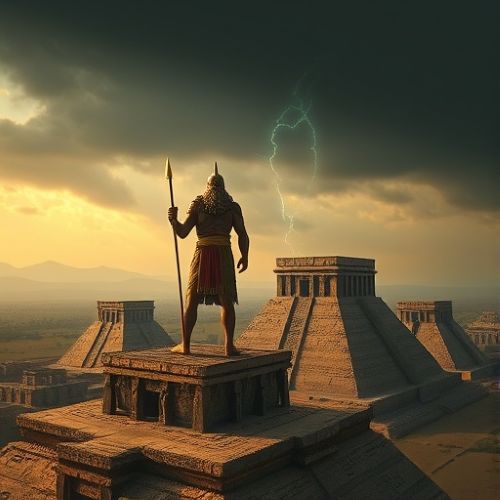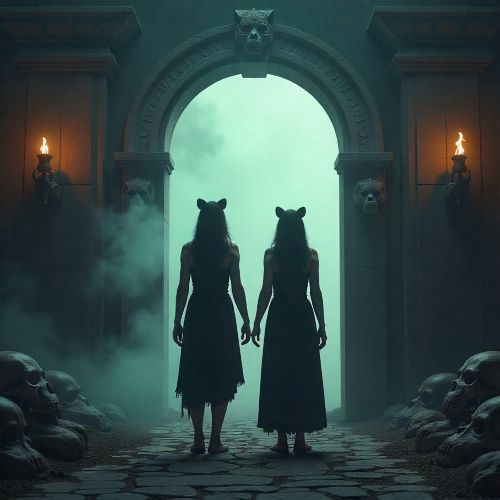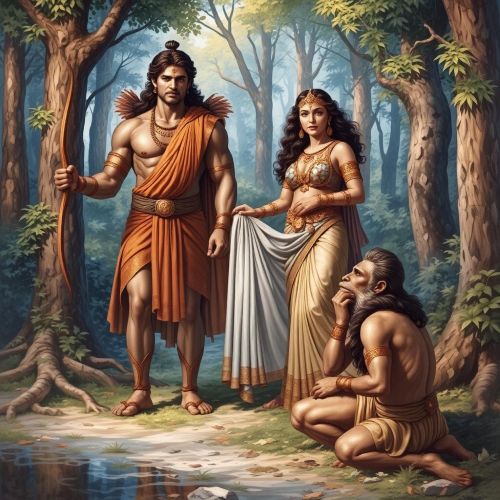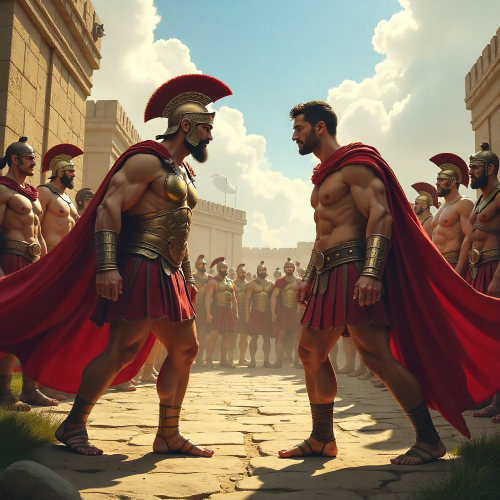Epics
Epics are the grand narratives of human imagination, weaving together history, culture, and morality into stories that have endured for centuries. In mythology, epics occupy a special place, capturing the struggles of gods, heroes, and mortals while reflecting the values and beliefs of ancient civilizations. From the ancient Indian Ramayana and Mahabharata to the Greek Iliad and Odyssey, epics transcend time and geography, offering insights into the human condition and the divine.
At their core, epics are more than just stories; they are cultural touchstones that preserve the worldview of the societies that created them. These narratives often explore universal themes such as heroism, duty, honor, love, loyalty, and the eternal battle between good and evil. They combine historical elements, mythological frameworks, and poetic language to create a tapestry that educates, entertains, and inspires. For example, the Indian epics of Ramayana and Mahabharata not only chronicle the adventures of divine heroes but also provide moral guidance, philosophical insight, and reflections on dharma (righteousness). Similarly, Greek epics like Homer’s Iliad depict the consequences of pride, ambition, and honor in a world where gods and mortals interact.
The structure of epics is also distinct, often characterized by lengthy verse, formal diction, and episodic storytelling. These stories are divided into books or cantos, featuring heroic quests, supernatural interventions, and moral dilemmas. Central characters are typically larger-than-life figures whose decisions and virtues shape the course of history and reflect the ideals of their culture. Supporting characters, divine beings, and mythological creatures enrich the narrative, creating complex worlds that mirror both reality and imagination.
Epics have had a profound influence on literature, art, and culture across the globe. They have inspired countless adaptations, including plays, films, television series, and contemporary novels. Beyond entertainment, epics serve as educational tools, offering lessons on ethics, leadership, and societal norms. Their enduring appeal lies in their ability to connect human experiences with the cosmos, illustrating timeless truths that resonate even in the modern era.
Moreover, epics are not confined to a single culture or region. Across Asia, Europe, and the Americas, epics have shaped national identities and spiritual traditions. In Southeast Asia, local adaptations of the Ramayana and Mahabharata—such as the Thai Ramakien or the Indonesian Kakawin Ramayana—demonstrate the flexibility of epic narratives to reflect regional customs and artistic sensibilities. Similarly, Norse epics like the Poetic Edda preserve the heroic ideals of Scandinavian societies, while Mesopotamian epics like the Epic of Gilgamesh explore existential questions and the quest for immortality.
In summary, epics from mythology are timeless treasures that continue to educate, inspire, and entertain. They bridge the mortal and the divine, the historical and the fantastical, offering lessons that remain relevant across centuries. Whether through heroic deeds, moral dilemmas, or interactions with the supernatural, epics reveal the enduring human fascination with storytelling and the eternal quest for meaning. Exploring these epic tales allows us to understand not only the cultures that created them but also the universal themes that unite humanity across time and space.





